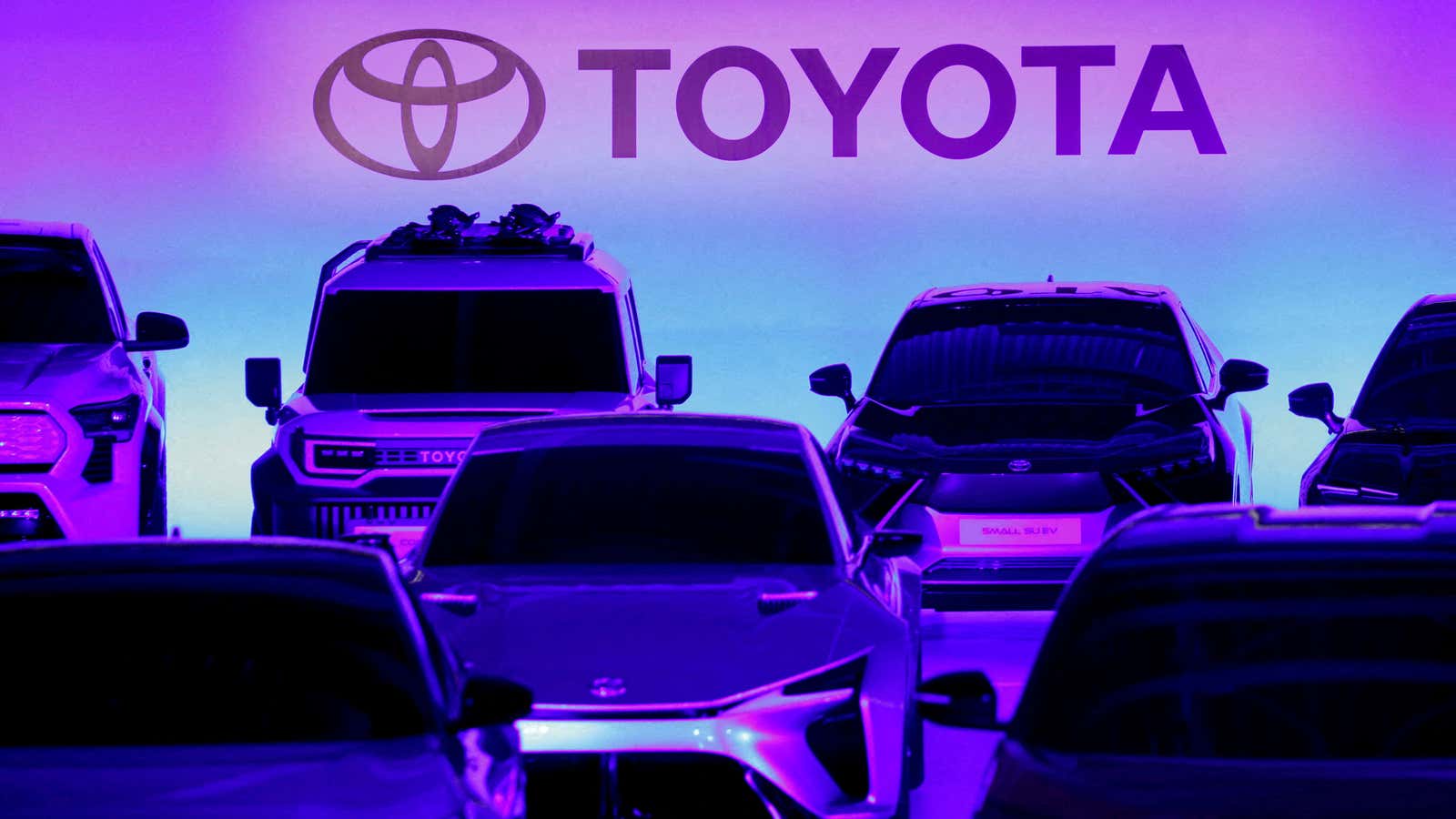In the two weeks since the Inflation Reduction Act (IRA)—the biggest climate bill in the US history—was signed into law, foreign companies have announced a flurry of blockbuster investments in battery plants in the US.
These investments are likely spurred by the promise of attractive tax credits offered under the IRA for electric vehicle manufacturers that meet sourcing requirements. To be eligible for these credits, at least 40% of critical minerals used in EV batteries must be sourced from the US or a free trade partner by 2024. That threshold will ramp up to 80% by 2027.
Toyota, Honda, and LG want to make batteries in the US
Toyota, the Tokyo-listed carmaker, said today (Aug. 31) that it will invest $5.3 billion in Japan and the US to boost EV battery output. Nearly half of that amount will go towards a new battery plant in North Carolina.
Battery production is expected to begin between 2024 and 2026, according to Toyota. Once its US plant is online and fully operational, the company aims to manufacture enough lithium-ion batteries there to power 1.2 million EVs per year.
The news from Toyota comes just a day after Japanese carmaker Honda and South Korea’s LG Energy Solution pledged to invest $4.4 billion to jointly build a EV battery plant in the US. The companies didn’t disclose a location, but Honda currently has large manufacturing operations in Ohio, Alabama, and Indiana.
And last week, the Wall Street Journal reported that Japan’s Panasonic—which supplies batteries for Tesla’s cars—is planning a $4 billion battery plant in the US. That’s on top of another battery factory, slated for Kansas at roughly the same volume of investment, that the firm had announced in December.
Will China make batteries in the US?
Right now, given the limited mineral processing and battery production capacity outside of China, most EVs are unable to qualify for the IRA’s tax credits. Simon Moores, CEO of the consultancy Benchmark Mineral Intelligence, has called for the 40% minimum sourcing requirement to be pushed back from 2024 to 2028 to give the US battery supply chain enough time to take shape and factor in the tax incentive.
Still, as major Japanese and South Korean firms unveil battery production investment plans in the US, there has been one notable exception: CATL, the Chinese battery giant.
The Shenzhen-listed firm has reportedly delayed announcing its own multi-billion-dollar North American battery plant over heightened US-China geopolitical tensions, especially after US House Speaker Nancy Pelosi visited Taiwan earlier this month. However, Reuters has reported that CATL is pressing ahead with its long-planned North American investment.
This post has been updated to clarify that Toyota first announced its North Carolina plant in December 2021, not July 2022.
